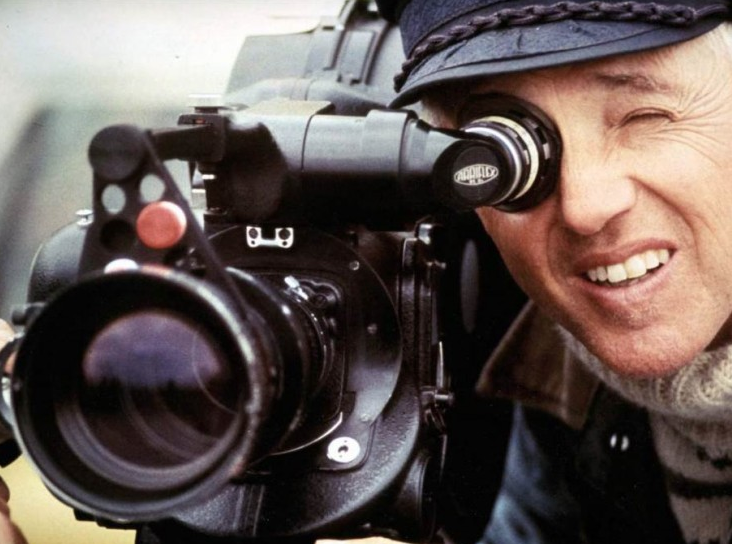Maybe the greatest challenge of writing is what comes before writing: gathering materials.
 Often, we are so eager to put words to paper that we start drafting before we have the necessary materials — stories, portraits, facts, definitions, background information, and so on.
Often, we are so eager to put words to paper that we start drafting before we have the necessary materials — stories, portraits, facts, definitions, background information, and so on.
We begin with a topic and then start to write what we know about that topic. Alas, what we know at the beginning of any project is a lot less than we need.
When you don’t have enough materials to build something–whether it’s a house or an essay–there’s a tendency to fake it. When you’re missing key information, you pretend you don’t need it. Or you use other information that doesn’t quite answer key questions. You generalize.
Suppose, for example, I wanted to tell the story of a bus that travels from San Francisco to the 1963 March on Washington. The bus is filled with civil rights activists of all types, young and old,. professional and working class, black and white and Asian, and so on. On this journey, the people on the bus talk, debate, sing, sleep, and eat. They get to know each other and deepen their commitment to the cause of civil rights.
So far, so good. But such a description doesn’t really tell us anything about the people or their journey. To really say something interesting, you need specific vignettes. You need to zoom in on the conversations. You need to capture the people, as they cluster together and interact.
That’s what Haskell Wexler does in his classic documentary The Bus. Wexler and his film crew were on the bus for the whole cross-country journey. They shot miles of film. They never outlined what the film would say until long after they gathered the materials for the film.
Haskell Wexler, if you don’t know, was a pioneering documentary filmmaker. Medium Cool, his documentary about the Democratic Convention in Chicago in 1968, is considered one of the most radical experiments in film history. He did other documentaries on the Weathermen (Underground) and the Occupy movement (Four Days in Chicago). He was also cinematographer for Mike Nichols (Who’s Afraid of Virginia Woolf?), Norman Jewison (In the Heat of the Night), Milos Forman (One Flew Over the Cuckoo’s Nest), and Hal Ashby (Bound for Glory). He died in 2015 at the age of 93.
Here’s the thing: When Wexler and his crew were shooting The Bus, they had little idea what information they were capturing. They turned on the cameras, put microphones in front of people, and let the machines record the moments. When the march was over, they sent the tins of film to a lab for processing. Then they watched hundreds of hours of footage. That’s when they discovered what they had.
They did not try to assemble their story until they had all the raw materials they needed. Wexler didn’t write storyboards before the bus journey began. He also didn’t start to craft his sequences along the trip. He didn’t get together with his crew in Iowa and say, “OK, let’s start putting together our documentary. How shall we start? How shall we end?”
No, Wexler waited until he gathered all the material he could possibly gather. Then–and only then–he could start to put together his story.
I interviewed Wexler when I was working on Nobody Turn Me Around, my narrative account of the March on Washington. I was at first surprised when he told me he had no idea–no idea at all–what the documentary would be about until months after the march.
“The film is made in the editing room,” he told me. There is no way–no way at all–he could even begin to figure out his story until long after he had gathered his materials.
“A lot of times, the bus makes noise and I don’t know what’s being said, what’s going on. A lot of times I ’m not physically close to the person. A lot of times I don’t really hear. I don’t like to point the camera close to people’s faces, if I can get it otherwise. So the people talk to the sound person, not the camera. And I don’t hear what’s being said.”
Wexler knew some of the characters he was shooting. After all, he lived with them for days. Here’s an example. During the trip, one of the bus passengers urged him to interview an old man named Joseph Freeman. Back in 1919, Freeman was a laborer in Washington, D.C. When he left work one night, he had no idea a race riot was under way. A bunch of thugs surrounded him and tried to pull him into an alley. He escaped, jumped on a train and went all the way to San Francisco. Now he was coming back to Washington fir the first time. (See Freeman at 1:21 in the above video.)
Wexler had his crew shoot Freeman talking with a young marcher. But he didn’t know if the material was any good till he got back home.
We writers should be like Haskell Wexler. We should gather material–tons of material, for more than we could ever imagine using–without worrying how we might arrange it. We should read books and periodicals, dive into archives, read oral histories, conduct interviews, study videos and audios, and analyze data sets.
But we should never start writing until we have a lay of the land–until we have the materials we need.
Like Wexler, we should understand the basic subject we are exploring, as much as possible, at the beginning of the project. And we should consider different lines of inquiry.
But we should avoid all temptation to write until we have tons of material. When we get that material, we should read it all and tag the different ideas. When I tag ideas in my notes files, I highlight the ideas and put them in brackets <like this>. That way I can use the FIND function in my Word software to scan my files for key ideas.
At that point, I know what themes and ideas I need to organize in my final piece. Then I can start to come up with the right structure for my piece–and start writing.
Whatever you write, don’t even think about organizing your material until you have gathered a rich collection of materials. Let the research guide you. You’ll never get stuck again.
Before you go . . .
• Like this content? For more posts on writing, visit the Elements of Writing Blog. Check out the posts on Storytelling, Writing Mechanics, Analysis, and Writers on Writing.
• For a monthly newsletter, chock full of hacks, interviews, and writing opportunities, sign up here.
• To transform writing in your organization, with in-person or online seminars, email us here for a free consultation.

